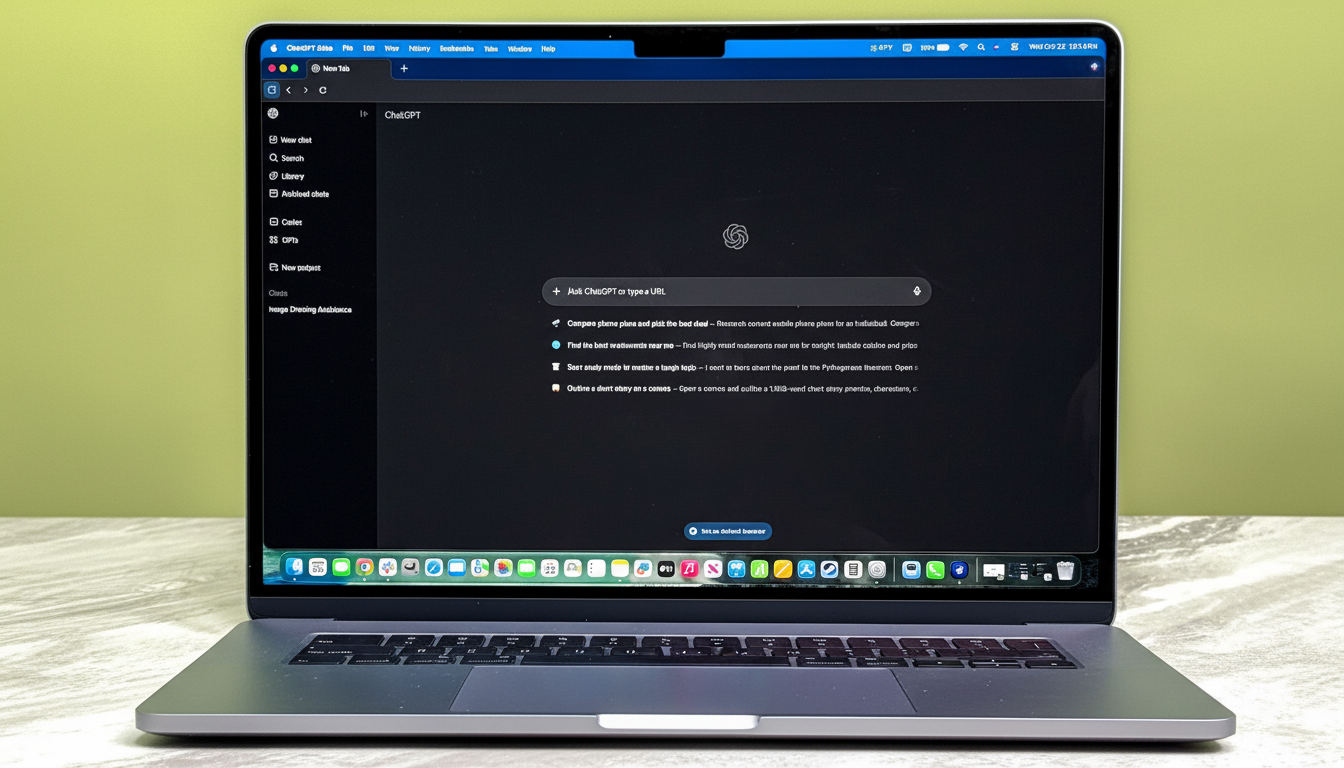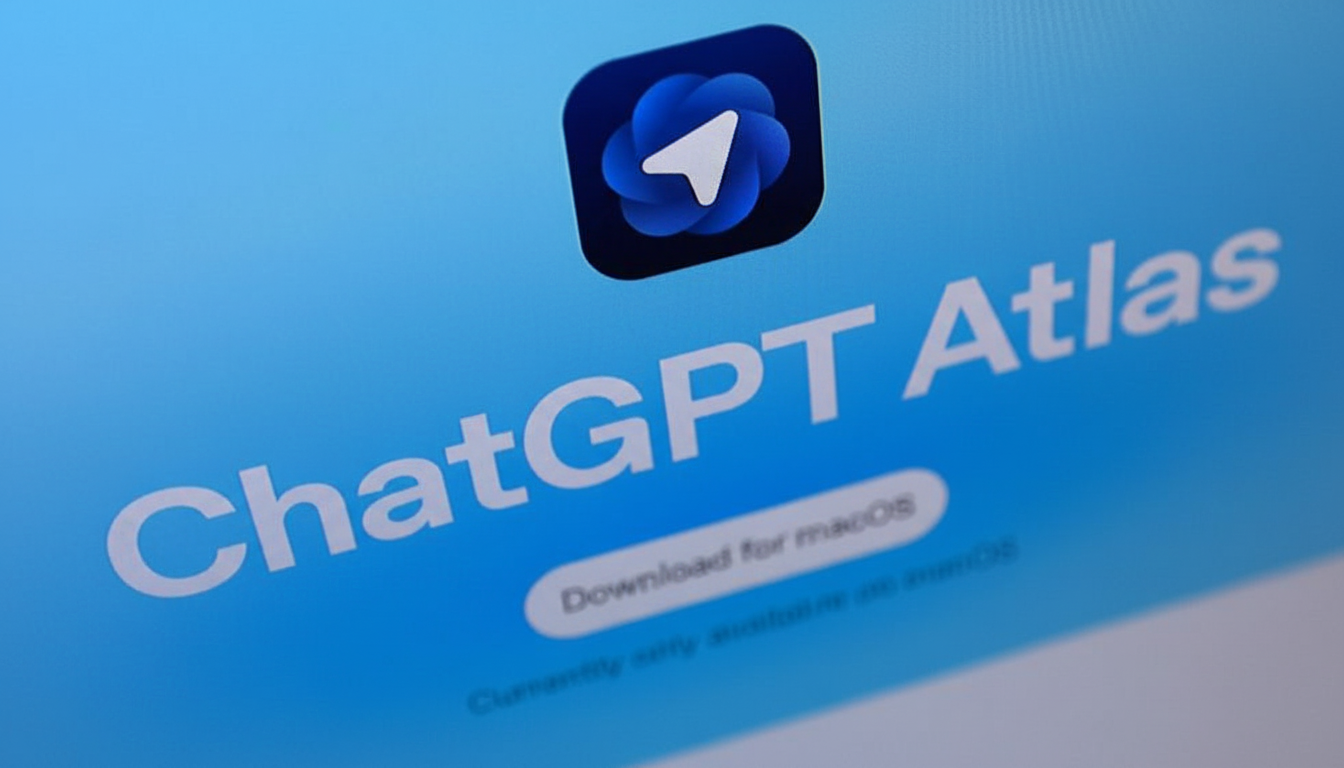OpenAI’s ChatGPT Atlas is the latest AI-first browser that is eager to have us forget about everything else, and oh man, does it show promise. The service’s Chromium-based app features a hybrid of traditional tabs, an always-on ChatGPT sidebar, and an “Agent” mode that can click, type, and carry out tasks on live websites. It’s interesting, sometimes fun, and even useful a small fraction of the time — but it’s not quite where Chrome is when it comes to using apps for daily tasks.
What Atlas Is Attempting to Accomplish as a Browser
Atlas reimagines the browser as a chat space. The homepage features a ChatGPT box instead of a traditional address bar, and the sidebar can provide page summaries or information extraction — or perform tasks for you. In its Agent approach, it visibly goes to a site, fills forms, and performs multiple click actions. A manual bot assistant that lives in your browser: It’s a chat overlay, of course, but it is also so much more.

This move reflects a general movement away from agentic AI. With giants like Microsoft and Google injecting assistants into established browsers, Atlas takes an unorthodox approach: it is the assistant. This obviously pays off when things cover many pages and decisions — reservations, shopping lists, or light data wrangling.
Setup and Privacy Caveats You Should Know About
Atlas is available now for macOS, with Windows and Android promised.
Although Apple Silicon can handle AI locally, all Atlas interactions are handled in the cloud. Onboarding is slick; you have options to bring in data and enable “Memories” so that the AI has access to your past preferences and context across sessions.
Privacy needs a careful read. The materials from OpenAI express that model training is turned off by default for business accounts, which isn’t the case for personal accounts — depending on ChatGPT settings, each instance may still have model training switched on. If you favor strict isolation, check your account data controls prior to allowing the browser to watch activity. It serves as a reminder that issues around AI convenience and data governance have to be negotiated from the very beginning.
Agent Mode Is Cool but Uneven in Real-World Use
Agent mode is its headline feature — and it’s a premium feature that you must pay for if you are on a paid ChatGPT tier. You can toggle between “Logged In” or “Logged Out” mode from the sidebar, but to take action in a site account, you’ll need to both sign in on your webpage and activate the “Logged In” toggle. That confusion of dual-state status can be confounding sometimes, and it does occasionally report the wrong status.
When testing, Atlas composed a thank-you email in Outlook in around 15 seconds — straightforward, proper, and not intrusive.
It took an OpenTable reservation workflow to completion all the way through final confirmation, even selecting a highly rated (albeit expensive) option. One grocery task was more of a mixed bag: Atlas found a recipe for eggplant Parmesan, entered items into an Instacart cart over six minutes, but sneaked in a strawberry shortcake ice cream bar. Pulling in recent S&P 500 closing prices by way of a finance site for a spreadsheet prompt, it made and then charted % changes on a Google Sheet, but needed multiple tries (due to “error in message stream”).

It shows the steps of the agent and a “Take Control” button in case it goes off course — that’s handy for safety and transparency. Nevertheless, the drag of logins, occasional stops, and very occasionally some minor inaccuracies mean Atlas is often a slower option than if you DIY it, at least for simple trips.
Chipping Away at Chrome, Slowly but Steadily for Now
Atlas resembles a tidier Chrome, although the day-to-day shine isn’t there. The address bar is hidden until you click the top area, and I can’t access my Downloads, Favorites, or History with a single click of a button. You will be able to install extensions from the Chrome Web Store, though some of the essential navigational ergonomics feel stripped out.
The ChatGPT search box returns ad-free, link-forward results — refreshing — but you can’t set a default search engine across the board.
Voice input transcribes audio in the cloud and does not support a light, client-side dictation mode. The browser did handle system toggles — like dark mode, for instance — correctly, but it promised to switch to Bing and never really changed behavior.
How It Compares with AI Rivals in Today’s Market
Competition is fierce. Microsoft’s Edge with Copilot leads you through sites and reservations with a firmer hand; Perplexity’s Comet is quick on synthesis and in-page reactions. Chrome is systematically incorporating Gemini-driven features, but first and foremost, it’s a performance beast.
That is important, because the costs of switching are high. StatCounter shows Chrome still controlling north of 65% of world browser share, with Safari at just under 20% and Edge around 5%. For Atlas to cut through, it needs to be faster than manual clicks, clearer about permissions, and reliable across tedious business flows — the world of expense reports, vendor onboarding, and data pulls that run cleanly every time.
Who Atlas Is For, Right Now, and Who Should Wait
If you are curious about agentic browsing or already pay for ChatGPT, Atlas is a novelty that you may enjoy as a secondary browser. It’s cool to watch an AI play around with how to work through a workflow, and it can help you manage chores you don’t mind watching over. Yes, for the most part, Chrome, Safari, Firefox, and Edge are still faster, more stable, and more embedded in our muscle memory; since last year, they also provide solid on-page summaries without altering your workflow.
Atlas hypothetically has promise: if there were broader platform support, more consistent handling for logins, clearer data controls, and more reliable Agent runs, the math might look a little different. Today, it’s a very promising sidekick — a vision of how we’ll browse tomorrow — not the browser on which you entrust everything.

